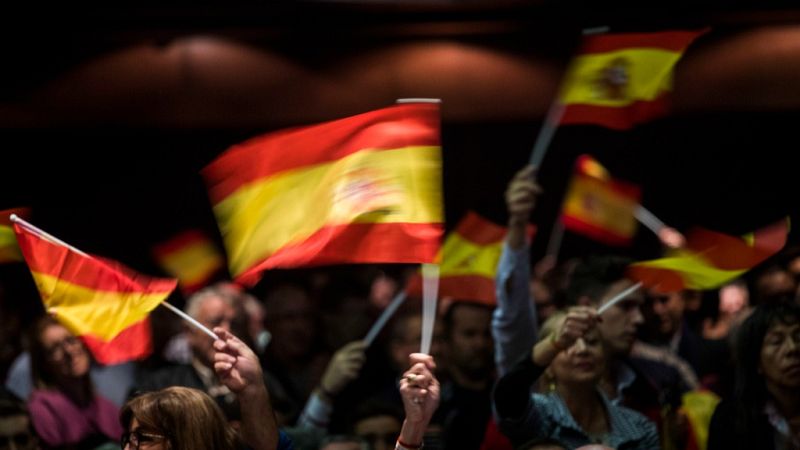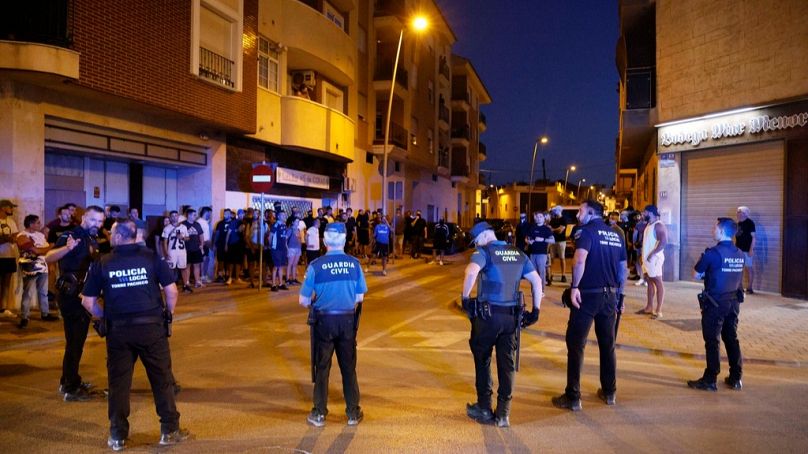Spain orders town to drop Muslim community religious gathering ban

The Spanish government has ordered a town to drop a ban on religious gatherings in public sports facilities, with ministers criticising the measure as discriminatory towards the local Muslim community and arguing that it violates the constitution.
The ban was approved last week by the conservative local government of Jumilla, a town of 27,000 in Spain's southeast region of Murcia.
The measure was initially proposed by the far-right Vox party and then amended and approved by the centre-right Popular Party (PP), to which the mayor of Jumilla belongs.
It prohibits municipal sports facilities from being used for "cultural, social or religious activities foreign to the City Council". The ban will mainly affect the town's Muslim community, which has for years used the spaces to celebrate Eid al-Fitr and Eid al-Adha.
Spain's socialist government swiftly denounced the ban, with Migration Minister Elma Saiz last week calling it "shameful" while urging the town's leaders to "take a step back" and apologise to local residents.
On Monday, Territorial Policy Minister Ángel Victor Torres said on X that Madrid had formally instructed Jumilla to cancel the ban.
"There can be no half-measures when it comes to intolerance," he said. "PP and Vox cannot decide who has freedom of worship and who does not. It is a constitutional right."
'Spain is not Al Andalus'
Conservative officials in Jumilla — an agriculture-based economy of vineyards, olive and almond trees — last week defended the ban.
Mayor Seve González told El País newspaper that it did not single out any one group and that her government wanted to "promote cultural campaigns that defend our identity".
Vox’s branch in the Murcia region celebrated the measure on Friday, saying on X that “Spain is and always will be a land of Christian roots”.
"We must protect public spaces from practices foreign to our culture and our way of life," Vox leader Santiago Abascal said, adding that "Spain is not Al Andalus," referencing the historic name for Muslim-ruled Spain.
Mohamed El Ghaidouni, secretary of the Union of Islamic Communities of Spain, criticised the local government's justification for the motion and said it amounted to "institutionalised Islamophobia".
Separately, the UN Special Envoy to Combat Islamophobia, Miguel Moratinos, said last week that he was "shocked" by the decision and voiced "deep concern about the rise in xenophobic rhetoric and Islamophobic sentiments in some regions in Spain".
The ban is the latest controversy involving immigration and multiculturalism in Spain.
It follows clashes last month in Murcia between far-right groups and local residents and immigrants. The violence erupted after an elderly resident in the town of Torre-Pacheco was beaten up by assailants believed to be of Moroccan origin, which prompted far-right groups to call for retribution on the region's large immigrant population.
For centuries, Spain was ruled by Muslims, whose influence is present both in the Spanish language and in many of the country’s most celebrated landmarks, including Granada’s famed Moorish Alhambra Palace. Islamic rule ended in 1492 when the last Arab kingdom in Spain fell to the Catholics.
Right-wing governments elsewhere in Europe have passed measures similar to the ban in Jumilla, striking at the heart of ongoing debates across the continent about nationalism and religious and cultural pluralism.
Last year in Monfalcone — a large industrial port city in northeastern Italy with a significant Bangladeshi immigrant population — its far-right mayor, Anna Maria Cisint, banned prayers in a cultural centre. The measure led to protests involving some 8,000 people, and the city’s Muslim community is appealing it in a regional court.
Today


